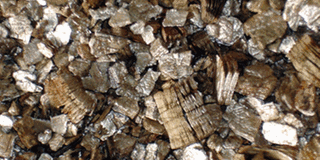Prime
Economic crisis affects vermiculite exports

Vermiculite deposits. South Africa is the world's biggest producer of vermiculite, accounting for about 40% of the 590,000 tonnes demanded a year. Internet Photo.
What you need to know:
Uganda’s production of vermiculite accounts for one per cent of worldwide production and is a potential source of revenue growth.
Effects of the economic crisis in Europe are gradually hurting Uganda’s vermiculite exports as orders have been cut by 20 per cent.
Dupré Minerals Limited, a leading UK based vermiculite distributor and the purchaser of Uganda’s vermiculite has cut its purchase to 18,000 tonnes down from 22,000 tones.
Officials from Gulf Industries Limited, the company operating the Namekhara vermiculite project in Uganda in a document from Dupré said:
“Difficult economic conditions in Europe indicated purchases of approximately 18,000 tonnes on an annualised basis which is 20 per cent less than the Gulf’s budgeted production this year.”
This takes immediate effect and will look to restructure and streamline operations to reduce costs at this lower production level.
“Gulf and Dupré would continue to work together to obtain new vermiculite customers both in Europe and worldwide to increase sales,” the statement said.
This news comes after Gulf Industrials Limited in its last quarter that ended on June 30 2012 disclosed, it’s advancing programme at Namekara with the intention to increase its capacity to 30,000 tonnes per year.
Due to the factors set out below, Gulf was unable to achieve its target but instead received 22,000 tonnes per annum.
“The months of April and May 2012 have been difficult with the operation being severely hampered by an abnormally wet season. This heavy rain has led to the pit being flooded and, as a result, the plant running out of ore on numerous occasions as the flooding has limited mining.
This uncharacteristically wet weather has also markedly restricted the ability to deliver Gulf’s product to port. As a result, a large stock build-up on site has occurred as roads in the surrounding areas have been affected by the wet conditions. Increased production has also tested road capacity.
Uses
Vermiculite is used as an insulator, in making fireproof boards, as a replacement of asbestos in brake linings, packaging materials, and lightweight concrete in construction. The poorer grades of vermiculite are used in horticulture (flowers), tea nurseries and golf courses, due to its ability to retain water over long period.
Background
Historically, Uganda’s economy has been based on agriculture, relying heavily on coffee, tobacco and fish exports. Approximately 70 to 80 per cent of the population is employed by the agricultural industry.
The country’s extractive industry activities have focused on commercial mining of cobalt, gold, copper, iron ore, tungsten, steel, tin and other industrial minerals such as cement, diamond, salt and vermiculite.
Uganda’s production of vermiculite accounts for one per cent of worldwide production and is an ongoing source of revenue. The country has sufficient reserves to continue its current production for another 100 years.
Vermiculite is found at Sukulu in Tororo district and Bukusu carbonatite complex in Mbale district. The main occurrence at Bukusu is on a 10 km long semi-circular ridge (Namekhara, Nakhupa, Surumbusa, Kabatola and Sikusi), where vermiculite flakes occur in residual concentrations (from the leaching of phlogopite in carbonatite) below a surface cover of three to five metres of magnetite rubble.
Apart from Namekhara, it is only Kabatola that contains appreciable quantities of vermiculite .
“Recent exploration at Namekhara has delineated a resource of approximately 4 million tonnes of high quality vermiculite, which is probably one of the best known at present in the world,” according to the Uganda Investment Authority industry profile.
Gulf Resources (U) Ltd is currently mining and processing vermiculite with a planned output of 40,000 tonnes per year. Previous mining and processing activities were carried out by NPK Resources Ltd, Carmin resources Ltd. of Canada and Rio Tinto of South Africa.



